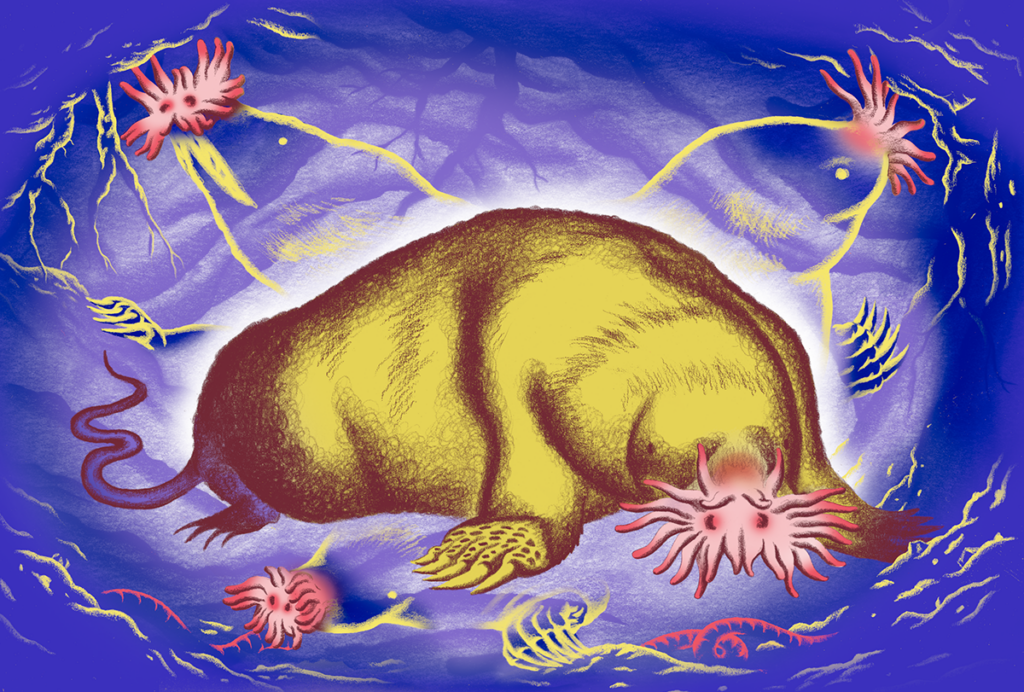ASHG 2014
Recent articles
Autism risk region arose during human evolution
Humans may be uniquely prone to rearrangements of chromosome 16 that lead to autism, according to preliminary results presented Saturday at the American Society of Human Genetics Annual Meeting in San Diego.
Autism risk region arose during human evolution
Humans may be uniquely prone to rearrangements of chromosome 16 that lead to autism, according to preliminary results presented Saturday at the American Society of Human Genetics Annual Meeting in San Diego.
Autism-linked deletion sparks symptoms via many genes
Deletion or duplication of 16p11.2, a chromosomal region linked to autism, may trigger symptoms via the interactions of genes both within and outside the region at a key point in development. Researchers presented these preliminary results Sunday at the 2014 American Society of Human Genetics Annual Meeting in San Diego.

Autism-linked deletion sparks symptoms via many genes
Deletion or duplication of 16p11.2, a chromosomal region linked to autism, may trigger symptoms via the interactions of genes both within and outside the region at a key point in development. Researchers presented these preliminary results Sunday at the 2014 American Society of Human Genetics Annual Meeting in San Diego.
Massive sequencing database helps interpret mutations’ role
Researchers have analyzed more than 90,000 exomes — the protein-coding regions of the genome — the largest such set yet, they announced Monday at the American Society of Human Genetics Annual Meeting in San Diego. The resource gives scientists an invaluable tool to probe the significance of specific mutations.

Massive sequencing database helps interpret mutations’ role
Researchers have analyzed more than 90,000 exomes — the protein-coding regions of the genome — the largest such set yet, they announced Monday at the American Society of Human Genetics Annual Meeting in San Diego. The resource gives scientists an invaluable tool to probe the significance of specific mutations.
Scientists plan to release thousands of whole autism genomes
Researchers have sequenced the whole genomes of 1,000 people with autism and their parents, they announced yesterday at the American Society of Human Genetics Annual Meeting in San Diego. These sequences, and another 1,000 that are on the way, will eventually be freely available online.

Scientists plan to release thousands of whole autism genomes
Researchers have sequenced the whole genomes of 1,000 people with autism and their parents, they announced yesterday at the American Society of Human Genetics Annual Meeting in San Diego. These sequences, and another 1,000 that are on the way, will eventually be freely available online.
Whole-genome sequencing reveals new types of autism risk
Much of the genetic risk for autism may reside in regulatory regions of the genome, hidden from traditional methods of sequence analysis. That's the upshot of preliminary results from three studies presented yesterday at the American Society of Human Genetics Annual Meeting in San Diego.

Whole-genome sequencing reveals new types of autism risk
Much of the genetic risk for autism may reside in regulatory regions of the genome, hidden from traditional methods of sequence analysis. That's the upshot of preliminary results from three studies presented yesterday at the American Society of Human Genetics Annual Meeting in San Diego.
Explore more from The Transmitter
Neuro’s ark: Understanding fast foraging with star-nosed moles
“MacArthur genius” Kenneth Catania outlined the physiology behind the moles’ stellar foraging skills two decades ago. Next, he wants to better characterize their food-seeking behavior.

Neuro’s ark: Understanding fast foraging with star-nosed moles
“MacArthur genius” Kenneth Catania outlined the physiology behind the moles’ stellar foraging skills two decades ago. Next, he wants to better characterize their food-seeking behavior.
Largest leucovorin-autism trial retracted
A reanalysis of the data revealed errors and failed to replicate the results.

Largest leucovorin-autism trial retracted
A reanalysis of the data revealed errors and failed to replicate the results.
NIH scraps policy that classified basic research in people as clinical trials
The policy aimed to increase the transparency of research in humans but created “a bureaucratic nightmare” for basic neuroscientists.

NIH scraps policy that classified basic research in people as clinical trials
The policy aimed to increase the transparency of research in humans but created “a bureaucratic nightmare” for basic neuroscientists.